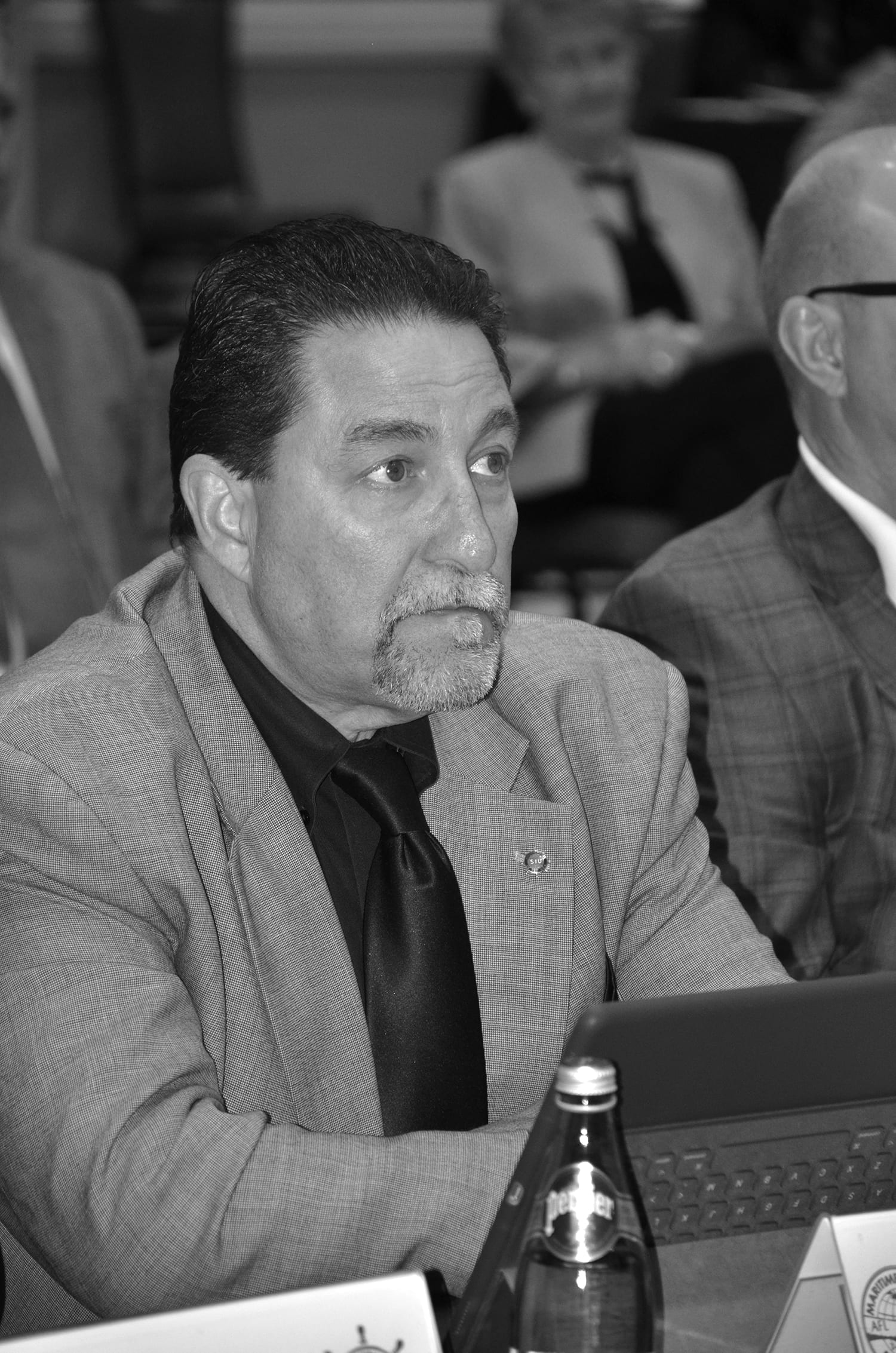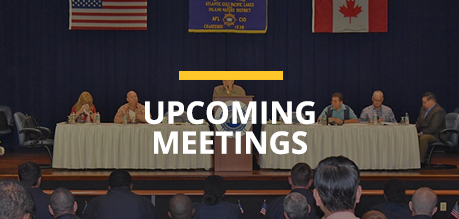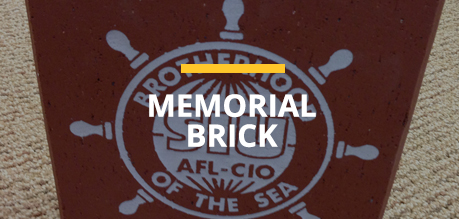Presented with the sizable task of describing some of the more significant challenges facing the maritime industry, SIU Secretary-Treasurer David Heindel opened with what’s arguably the runaway leader in that category: crew-change crises across the globe.

SIU Secretary-Treasurer David Heindel
Besides his role with the SIU, Heindel also serves as the head of the International Transport Workers’ Federation’s (ITF) Seafarers’ Section. He figuratively wore that hat as a keynote speaker Nov. 28 during an online address that reached tens of thousands of people in real time. The two-day event was hosted by The Naval Connection, and featured more than 40 “global leaders” from all components of the maritime industry.
The host organization offers wide-ranging services including mariner training, consulting, quality management and process audits, and more.
Heindel also talked about how new technology will affect the industry; the realities of a career at sea; and how the ITF has worked collaboratively in the shipping industry. But he began by describing “the most pressing – and least forgivable – challenge faced by our industry.
There are approximately 400,000 seafarers currently suffering because of the pandemic, whether it’s due to ship restrictions or pre-work quarantines or other related hardships. Employer organizations estimate that around half of those mariners – 200,000 people – have completed their tours but are unable to return home due to various port state, labor supply state and travel restrictions.
“For those who are unaware, seafarer contracts are often as long as nine months on average,” he continued. “Imagine working that long, seven days a week, and rarely or never leaving the ship, but still being stuck when you’ve finished your contract.
Those travel restrictions cut both ways, too. There are hundreds of thousands of other seafarers who are ready to go back to work but are unable. This means they can’t support their families.” He then provided several examples of mariners fulfilling their contracts but subsequently being unable to leave the ships for months. In some instances, mariners ended up spending 20 straight months on the vessels.
“This is just the tip of the iceberg,” Heindel asserted. “The ITF has numerous examples of other seafarers being held on board ships for more than a year because of the inability or unwillingness of shipowners, charterers or governments to make crew changes happen.
The ITF has received more than 12,700 requests for help from seafarers since the pandemic began. Not all of those requests are about getting on or off the ship. The pandemic also has created problems with non-payment of wages, and lack of provisions on board. And by ‘lack of provisions’ I don’t mean that the crews want big-screen televisions. Some, cannot get basic food and water supplies.
Some of these conditions are what we’d normally call slave labor.”
Besides the basic humanitarian considerations, Heindel said there are other problems stemming from the prolonged tours.
“Even in normal times, this industry is characterized by very long hours,” he explained. “We’re in a dangerous spot with these extended tours, because tired and exhausted crew members are much more likely to be involved in accidents, with potentially disastrous consequences not only for human life but also for the environment.”
For remediation, he said mariners “need to be properly identified and respected as key, essential workers. Following ITF and employer lobbying, the United Nations has endorsed this approach, but in many countries it hasn’t been enough.”
He said the industry also needs “consistency and cooperation with national administrations so commitments by transportation departments are upheld across other governmental agencies. We need foreign affairs agencies of labor supplying countries and port states to cooperate to assure passports can be renewed and/or extended for those trapped on board vessels and that visas can be issued or extended.”
Heindel added, “We need leniency when it comes to international travel so that mariners can go to their jobs and then go home. We need flexibility from governments because society hasn’t faced a pandemic like this in a century.
And we need follow-through from all concerned, for all the right reasons.”
Some progress has been made, he noted: “Those of us in the industry have done practically everything possible, short of shutting the industry down, to facilitate the easing of the crew change crisis. Now, we need governments to recognize the importance of the industry, the significance of the human capital that keep their supplies and trade moving and keeping their store shelves filled….
If you retain nothing else from this presentation, please remember that hundreds of thousands of mariners around the world need our help – and the world, in turn, depends on their work.” Changing subjects, he then discussed the ILO Maritime Labor Convention (2006) and its positive impact on mariners; periodic criminalization of seafarers; and maritime piracy. Notwithstanding those and other challenges, Heindel said maritime careers still can be appealing. There is a shortage of seafarers around the world, though.
“For one thing, those jobs aren’t going away anytime soon,” he said. “There isn’t a single country in the world that can support its economy internally without importing some goods or materials from other nations – items that can only be moved by sea in sufficient quantities. And yes, that includes China.
Approximately 170 countries have an investment in seafarers as a workforce, and for island nations in particular, it’s imperative that they retain those individuals.
“Personally, I think we can help make it a more attractive career by ensuring that the typical requirements are more realistic, and that all parties feel invested beyond finances,” he added. “Right now, a contract is likely to involve a seafarer from South Asia going on a tour of duty lasting nine months, and that will be their only commitment to the shipping company.
We might question what kind of loyalty these seafarers can realistically have, but yet they’re delivering the essentials of life for the rest of humanity.
The ITF believes a longer-term vision should involve working together as an industry to shape the future skills needed to crew ships and therefore provide young seafarers, including more women, with skills that can later be transferable to a shore-based job.”
He concluded by discussing new technology in the maritime industry.
“As with all transport sectors, there are moves towards more automation on ships,” he said. “Seafarers will never stand in the way of progress, but new technology must be used to relieve the burden on mariners and to help them be more effective rather than replacing them.”
###





Comments are closed.